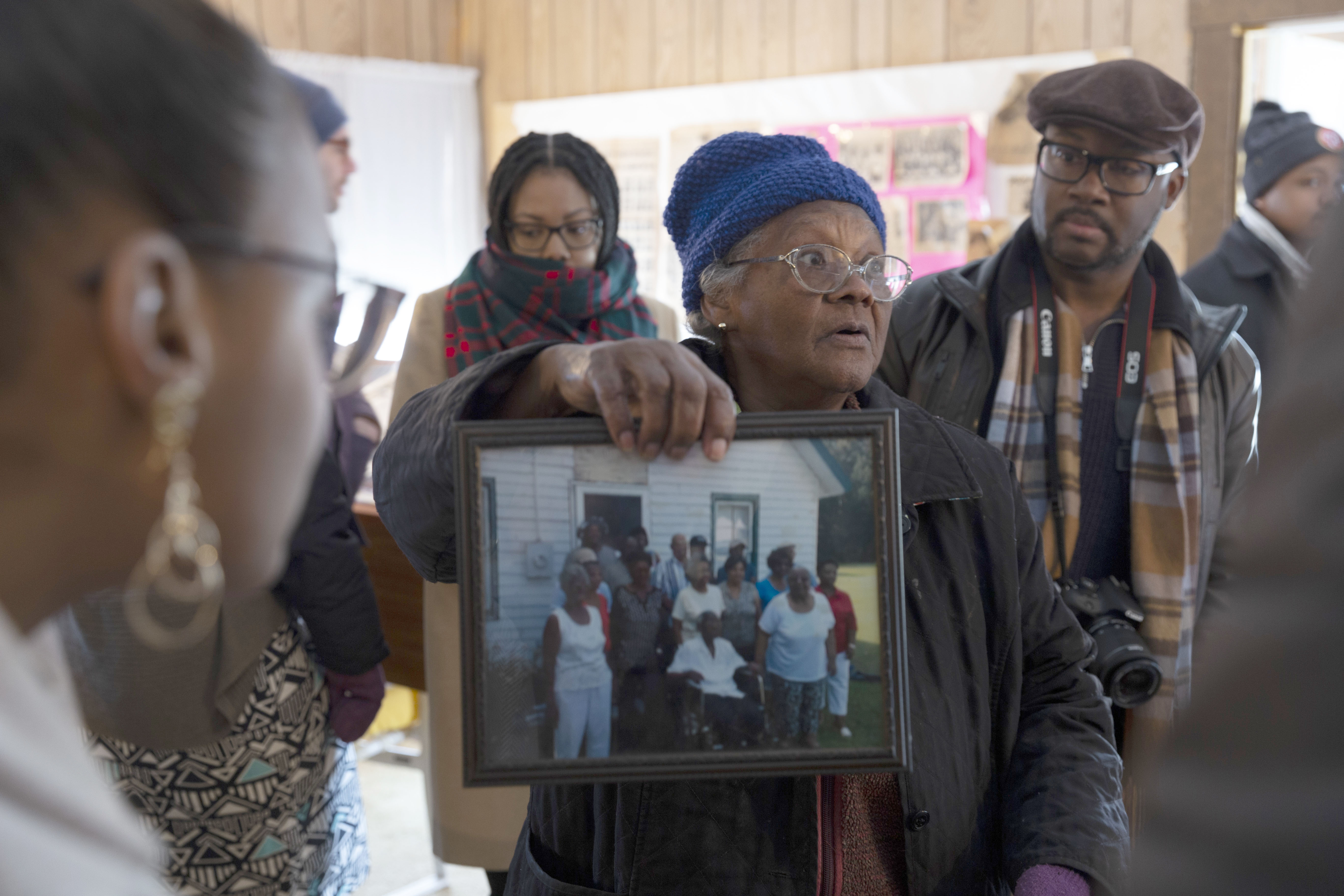Chesapeake Heartland Project Builds Bridges With Local African American Community
Through a public history project funded by the Mellon Foundation, Washington College’s Starr Center for the Study of The American Experience is collecting and preserving the stories of Kent County’s African American families.

Irene Moore (center), with Starr Center staffers Jasmyn Castro and JaJuan Johnson, offers smithsonian staff a tour of the African American Schoolhouse Museum in Kent County in January 2020. Photo by Leah L. Jones for the National Museum of African American History and Culture.At the small liberal arts college founded on Maryland's Eastern Shore with the financial support of George Washington and other 18th-century slaveholders, the history of racial injustice is long and complicated. Washington College (WC) did not graduate its first African American student until 1962, nor hire its first full-time Black faculty until the 1980s.
Members of the local African American community—whose ancestors' labor helped build Washington College—have felt disenfranchised by that legacy of systemic racism. At the same time, the College seeks to build on a more recent legacy of collaboration with that community, stretching back to students' and professors' participation in local Freedom Rides and civil rights marches in the 1960s.
One way Washington College is seeking to make amends for centuries-old social injustices is through Chesapeake Heartland: An African American Humanities Project. The endeavor is a collaboration between WC, the Smithsonian's National Museum of African American History and Culture, and several community organizations, including Sumner Hall, Kent Cultural Alliance, and Kent County Public Library.
The project's name reflects the fact that African American history began on the shores of the Chesapeake Bay in 1619. Kent County, Maryland, home of Washington College, is a microcosm of much of that history, with a rich historical and cultural legacy spanning the earliest decades of enslavement, through the Underground Railroad, to the hip hop era. Chesapeake Heartland's mission is to preserve, digitize, interpret, and make accessible materials related to that history. It's a grassroots effort, employing community historians, awarding community-curation fellowships, training local teenagers, creating platforms for community interpretation, partnering with local schools and nonprofits, and fostering cross-generational and interracial conversations.
Originally conceived by staff at Washington College's Starr Center for the Study of the American Experience and at the Smithsonian, Chesapeake Heartland offers many opportunities to the school's undergraduates as well. Students are collecting oral histories, creating digital archives, researching family histories, receiving mentorship from Smithsonian curators, and documenting the stories that celebrate a shared humanity. The organizers are building an innovative model of public history that they plan to take to the broader Chesapeake region after its initial launch in Kent County. The project has received more than $1 million in funding from the Andrew W. Mellon Foundation, the state of Maryland, and private donors.
Later this fall, the College will roll out the Chesapeake Heartland African American Humanities Truck, which program director Pat Nugent describes as a digitization station, oral history studio, exhibit space, and pop-up festival ready to meet community members on their own ground.
“Chesapeake Heartland seeks to study the history of race in our region while also undoing institutional racism in the process,” Nugent says. “Together with our partners, we seek not only to document and interpret history, but also to make some history of our own.”